So you’ve decided to breed your dog? Excellent! Breeding dogs is a great way to produce healthy puppies and keep the breed alive and thriving. But before you get started, there are some things you need to know. In this article, we will discuss what happens if you breed a dog without breeding rights. We’ll cover everything from health concerns to legal implications, so that you can make an informed decision.
What Are Breeding Rights?
Breeding rights are essentially the permission to breed a dog. To obtain breeding rights, you must first register your dog with a recognized kennel club. Once registered, your dog will be given a pedigree, which is a document that outlines the dog’s ancestry and shows that it meets the standards for its breed. Breeding rights are granted by kennel clubs in order to maintain the integrity of the breed and to ensure that only healthy dogs are bred.
Keep the following in mind. First and foremost, your puppies will not have pedigrees or be eligible for registration with a kennel club. This means that they will not be considered purebred dogs. In addition, your puppies may be at a higher risk for health problems, as they will not have been screened for inherited diseases before breeding. Finally, you may face legal implications if you breed a dog without breeding rights, as this is often considered to be animal cruelty.
There are a few potential consequences that you should be aware of.
Show Dog Versus Pet Dog
When most people think about breeding dogs, they think about showing their dog in conformation events or competition obedience. In order to do this, the dog must be registered with a kennel club and have all of the required documentation, including a pedigree.
However, you can also breed your pet dog without any intention of showing them. Some people choose to do this in order to produce a litter of puppies that they can keep as pets, while others may wish to sell the puppies. Breeding your pet dog without rights is generally not considered to be as serious an offense as breeding a show dog without rights, but there are still some things you need to be aware of before making your decision.
Spay and Neuter Clauses
When you enroll your dog with a kennel club, you must agree to a spay and neuter contract. This contract requires that you have your dog spayed or neutered before they reach a certain age, usually between one and two years old.
There are a few things you should know about spay and neuter clauses before you decide to breed your dog without rights. First of all, you should be aware that spaying and neutering your dog can have some health risks. In addition, the cost of spaying or neutering your dog can be quite expensive, especially if you need to do it before they reach a certain age.
Return-to-Breeder Clause
Another clause that is often included in kennel club contracts is the return-to-breeder clause. This clause requires that you return any puppies that you produce to the breeder. The purpose of this clause is to prevent people from breeding their dogs without rights and then selling the puppies.

Health Guarantees
In order to register your dog with a kennel club, you will have to sign a health guarantee. This guarantee requires that you have your dog examined by a vet before breeding them.
Puppy Naming Conventions
When you register your dog with a kennel club, you will be required to sign a puppy naming contract. This contract requires that you name your puppies according to certain conventions. [1]

Why Do I Need Breeding Rights to Breed My Dog?
It’s important that you have the proper paperwork and breeding rights. Otherwise, you could be in for a world of trouble.
When you purchase a purebred dog from a breeder, that breeder will usually provide you with a certificate of registration from the American Kennel Club (AKC) or a similar organization. This certificate proves that your dog is indeed purebred and allows you to register it with the AKC. The AKC requires that all dogs used for breeding purposes be registered in order to maintain accurate pedigrees.
In addition to registering your dog with the AKC, you’ll also need to obtain a breeding license from your state. This license ensures that you meet certain standards set by the state in order to breed dogs. For example, most states require that breeders have their dogs examined by a veterinarian and prove that they are free of contagious diseases before breeding them.
They Help to Control the Bloodline
The main reason why breeding rights are so important is because they help to control the bloodline of a particular breed of dog. In order for a breed to maintain its purity, it’s important that only dogs with the same pedigree are bred together. Breeding rights help to ensure that this happens.
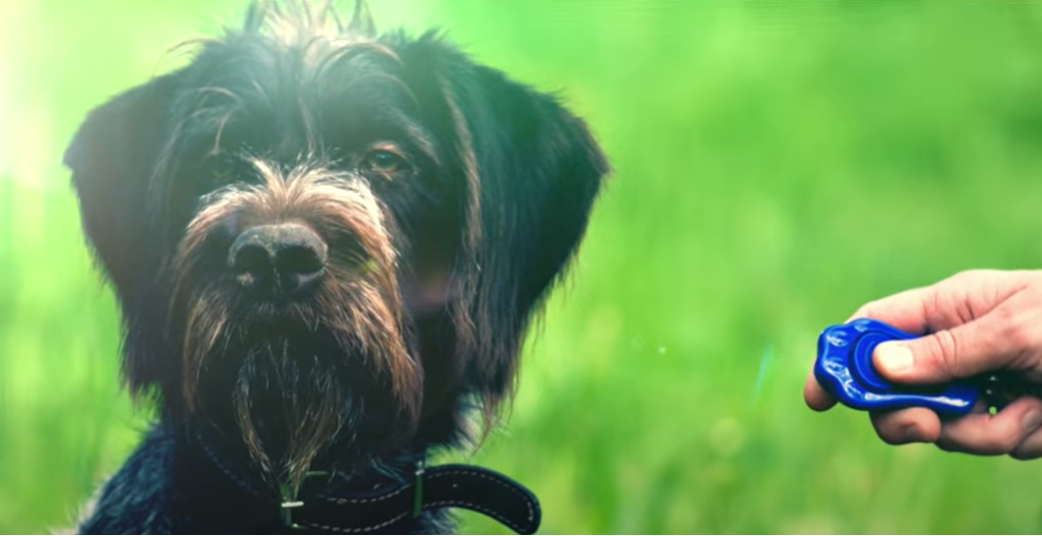
If you were to breed two dogs without breeding rights, there’s no guarantee that their offspring would be purebred. In fact, it’s quite likely that they wouldn’t be.
Prevents Unnecessary Health Problems
Another reason why breeding rights are so important is because they help to prevent unnecessary health problems in offspring. When two dogs of the same breed are bred together, their puppies will inherit a much higher risk of developing certain hereditary health conditions. This is because all of the puppies will have the same genes as their parents.
On the other hand, when two dogs of different breeds are bred together, their offspring will inherit a mix of genes from both parents. This can help to reduce the risk of certain hereditary health conditions being passed down to the puppies. However, it’s still possible for these puppies to inherit some health problems from their parents.
The bottom line is that if you want to breed your dog, it’s important that you have the proper paperwork and breeding rights. Breeding rights help to control the bloodline of a particular breed of dog and prevent unnecessary health problems in offspring. In order to obtain breeding rights, you’ll need to register your dog with the AKC and obtain a breeding license from your state. Remember, even if you have breeding rights, you should still have your dogs examined by a veterinarian before breeding them.
What Paperwork is Needed to Breed a Dog?
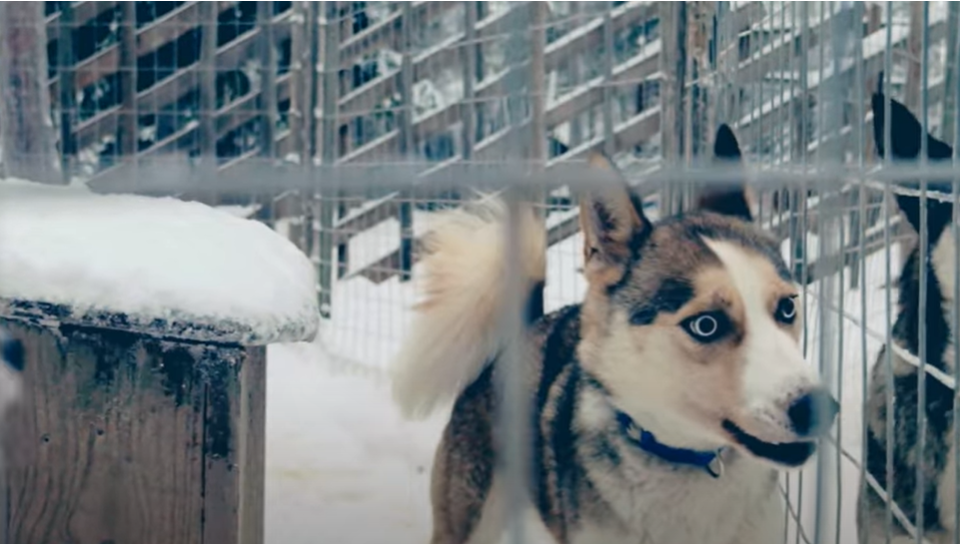
Here are some kind of paperwork that is typically needed in order to breed a dog:
- A contract or agreement between the breeder and the new owner
- A health certificate from a veterinarian
- Pedigree papers
- Registration papers (with a registered kennel club)
If you are breeding a purebred dog, then you will need to have the proper paperwork in order before you can sell the puppies. If you are breeding a mixed breed dog, then you may not need all of this paperwork, but it is still recommended.
Full Registration
A dog that is fully registered with a kennel club can be bred without any restrictions. The breeder will need to fill out a form and send it in to the kennel club, along with the registration fee. Once the dog is registered, the breeder will receive a pedigree certificate for the dog. This certificate will list the Dog’s name, date of birth, parents’ names, and grandparents’ names.
The main advantage of full registration is that it proves that the dog is purebred. This can be important if you are selling your puppies to people who want to show their dogs or breed them themselves. Full registration also allows you greater flexibility when breeding your dog, as there are no restrictions on who you can breed your dog with.
The main disadvantage of full registration is the cost. The registration fee can be quite expensive, especially if you are registering multiple dogs. In addition, you will need to pay an annual fee to keep your dog’s registration up-to-date.
Limited Registration
A dog that is only registered with a kennel club can still be bred, but there may be some restrictions on who the dog can be bred with. For example, the breeder may only be able to breed the dog with another limited-registered dog or a dog that has no papers at all. The advantage of limited registration is that it is usually less expensive than full registration. The disadvantage is that it limits your options when breeding your dog.
Certificate of Ownership
The certificate of ownership is a document that proves that you are the owner of the dog. This document is not always required, but it can be helpful if you need to prove your ownership of the dog for any reason.
If you are planning on breeding your dog, then it is important to make sure that you have all of the necessary paperwork in order. Breeding dogs without the proper paperwork can lead to problems down the road. For example, you may not be able to sell your puppies if they do not have registration papers. In addition, you may have difficulty finding homes for your puppies if they do not have pedigree papers.
Without full registration, mixed breeders will find it more difficult to place their pups in good homes. Most people want to see some proof that the dog they are getting is purebred, even if the parents are not. This means that without full registration, you may have a harder time finding buyers for your puppies.
Health Certification
A health certificate is a document that is issued by a veterinarian. This document states that the dog is in good health and does not have any contagious diseases. Health certificates are typically required when transporting dogs across state lines.
If you’re producing a litter of puppies, you’ll need an up-to-date health certificate for your dog. This is because you will need to transport your dog to the home of the person who is buying the puppy. Without a health certificate, you may not be able to transport your dog across state lines.
In addition, many kennel clubs require that dogs have a current health certificate in order to be registered. This means that if you want to register your dog with a kennel club, you will need to ensure that your dog has a current health certificate.
Health certificates are not expensive, but they do require a trip to the veterinarian. This can be a hassle if you do not live close to a vet.
Breeding dogs can be a rewarding experience, but it is important to make sure that you are doing it legally and responsibly. There are many laws and regulations surrounding dog breeding, and if you do not follow them, you could get into trouble. Make sure that you are familiar with the laws in your area before you start breeding dogs.
Health Records
Health records are important for all dogs, but they are especially important for breeding dogs. These records show the dog’s vaccinations, dewormings, and other health treatments. They also show any illnesses or injuries that the dog has had in the past.
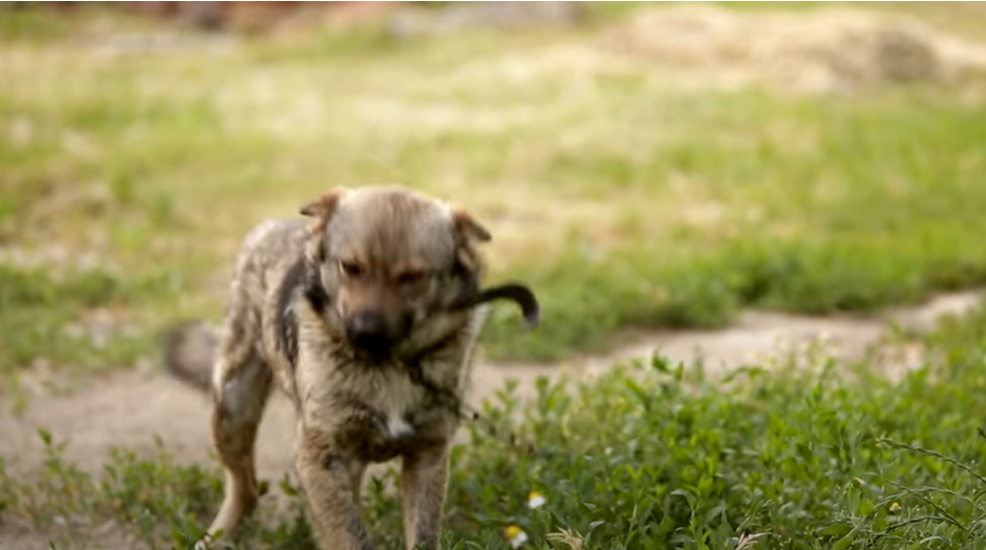
Kennel clubs typically require that breeding dogs have up-to-date health records. This is because kennel clubs want to make sure that breeding dogs are healthy and free of genetic diseases.
If you are selling your puppies, then you will need to provide the buyers with copies of the parents’ health records.
Health records can be expensive, especially if you need to get them from a veterinarian. However, they are important if you want to breed your dog.
Breeding dogs is not as simple as just letting them mate. There are laws and regulations that you need to follow, and there are also some medical considerations that you need to take into account.
Pedigree
Pedigree papers are documents that show the dog’s ancestry. These papers are typically required in order to register a dog with a kennel club. [2]
If you are breeding your dog, then you will need to make sure that your dog has pedigree papers. This is because most people who are buying puppies want to see proof that the puppy is purebred.
Without pedigree papers, you may have a hard time finding buyers for your puppies.
Can you breed a dog without breeding rights?
The quick answer is yes, you can technically breed a dog without breeding rights. However, there are a number of risks and drawbacks associated with doing so.
One of the biggest risks of breeding a dog without rights is that your puppy may not be able to be registered with the Kennel Club. This means that your puppy will not have any official pedigree or lineage, which could make it harder to find homes for them. Additionally, if you plan on showing your dogs in competitions, they will likely not be able to compete in most events.
Another risk is that your dog may inherit health problems from its parents if they are not properly vetted. This is because without breeding rights, there is no guarantee that the parents of your dog have been screened for genetic defects or diseases. [3]
What does no breeding rights mean for dogs?
If you breed a dog without breeding rights, it means that the dog cannot be registered with the Kennel Club. This could affect the dog’s ability to compete in shows and trials, and may also make it harder to find a good home for the dog. Breeding rights are important for dogs who are going to be bred, as they ensure that the puppies produced will be of high quality. [4]
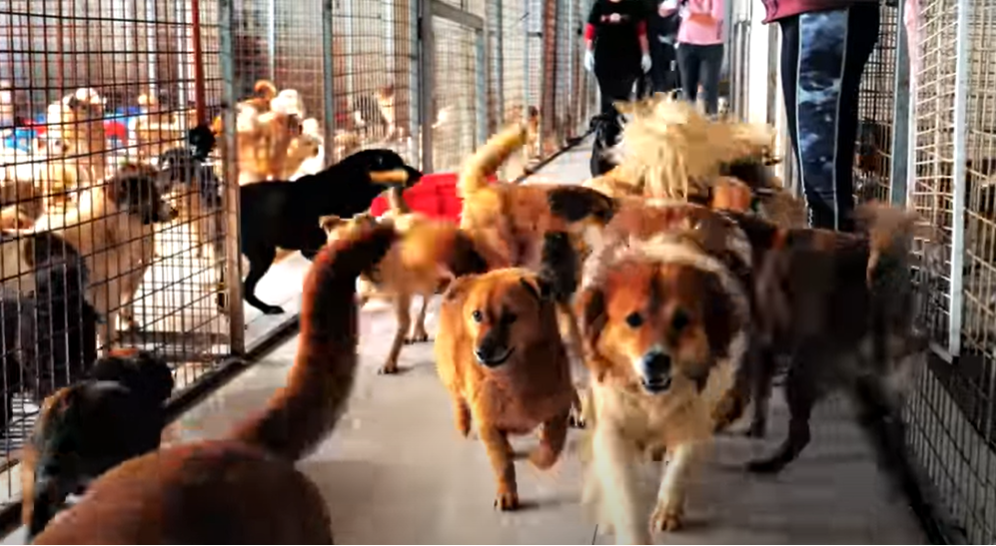
No breeding rights also means that the dog is not eligible for pedigree status. This can be important if you plan on showing your dog, as many shows only allow pedigree dogs to enter. It can also affect how much money you can sell the puppies for, as pedigree puppies usually fetch a higher price than non-pedigree puppies.
FAQ
Do you need permission to breed dogs?
No, you don’t need permission to breed dogs, but should know something before you do. Breeding rights are determined by the American Kennel Club (AKC) and they state that breeding rights are “a valuable property right that may be bought, sold, or leased with the dog.” If you breed a dog without breeding rights, it’s called an unregistered litter and the puppies can’t be registered with the AKC. [5]
There are a few reasons why people might choose to breed a dog without rights. Maybe they want to keep the litter for themselves and don’t want to go through the hassle of registering them. Or maybe they’re not planning on selling the puppies and so registration isn’t necessary. Whatever the reason, it’s important to be aware of the consequences of breeding a dog without breeding rights.
The most obvious consequence is that the puppies can’t be registered with the AKC. This means that they won’t have pedigrees and they won’t be able to compete in AKC-sanctioned events. If you’re planning on selling the puppies, this could make it difficult to find buyers since many people want dogs that come with papers.
Another consequence of breeding a dog without rights is that it could affect the health of the puppies. The AKC has strict standards for dog breeders and they require all breeders to test their dogs for certain diseases before breeding them. This helps to ensure that puppies are healthy and don’t have any genetic defects. If you breed a dog without breeding rights, the puppies might not have been tested for these diseases and so they could be at risk for health problems later on.
Lastly, breeding a dog without rights is against the law in some states. In Pennsylvania, for example, it’s illegal to sell unregistered dogs and violators can be fined up to $300 per dog. So if you’re thinking about breeding a dog without rights, make sure you check your state’s laws first.
Breeding a dog without rights can have some consequences that you might not be aware of. It’s important to do your research before you breed a dog to make sure you’re aware of all the potential risks.
Can you sell puppies if you are not a breeder?
The answer is no, you cannot. If you are not a registered breeder with the Kennel Club, then you will not be able to sell your puppies and will have to give them away for free. This is because it is illegal to sell puppies that are not KC registered. Puppies that are not KC registered can only be sold if they are over eight weeks old and have had their vaccinations.
If you want to breed dogs without breeding rights, then you need to find a buyer who is willing to pay for the dog without being able to register it with the Kennel Club. This can be difficult as most people want a KC-registered dog.
Another option is to find a registered breeder who is willing to sell you a dog without breeding rights. This can be difficult as most breeders want to keep their dogs within the KC system. You may be able to find a breeder who is willing to sell you a dog without breeding rights if you are willing to pay a higher price for the dog. [6]
You also need to find a vet who is willing to treat your dog even though they will not be able to register it with the Kennel Club. This can be difficult as most vets want to treat KC-registered dogs.
How many litters can a dog have legally?
In most states, you are allowed to have up to two litters of puppies per year without a breeding license. If you want to breed more than that, you will need to get a commercial kennel license. This is where things can get tricky, because the definition of a “commercial kennel” varies from state to state. In some states, it simply means that you sell more than 50 dogs per year; in others, it means that you sell any number of dogs for profit.
If you do not have a commercial kennel license and you are caught breeding more than the legal limit of dogs, you could be fined or even jailed. So if you’re thinking about breeding more than two litters of puppies per year, make sure you check with your local authorities first. [7]
Another thing to keep in mind is that most states have laws limiting the number of dogs that can be kept on a single property. So even if you have a commercial kennel license, you may still need to get special permission from your city or county if you want to keep more than a certain number of dogs on your property.
What are my rights when buying a puppy?
When you purchase a puppy from a breeder, you are buying what is called a “pet quality” dog. This means that the dog is not able to be shown in conformation events or used for breeding purposes. The breeder should provide you with a written contract that states that the dog is being sold as a pet and not for show or breeding. If the contract does not state this, then the breeder is breaking the law and you could take them to court.
If you have purchased a pet quality dog and later decide that you would like to breed him or her, you will need to purchase what is called a “breeding right” from the original breeder. This can be expensive, depending on the popularity of the breed, and is not always possible if the original breeder does not want to sell you the breeding right.
If you decide to breed your dog without a breeding right, you are breaking the law. This is called “unauthorized breeding” and it can result in heavy fines from your local government. In some cases, you may even be required to give up your dog to a shelter or rescue organization.
Useful Video: *The Problem With Bad Dog Breeding*
Conclusion
As you can see, there are a lot of things to consider before breeding the dog. Make sure that you do your research and understand the laws in your area before making any decisions. And, always consult with a veterinarian or other animal professional to make sure that breeding is the right decision for both you and your dog. Thanks for reading!
References
- https://www.akc.org/expert-advice/dog-breeding/everything-you-need-to-know-about-breeder-contracts/
- https://petkeen.com/breeding-rights-for-dogs/
- https://breedingbusiness.com/breeding-rights-for-dogs/
- https://petkeen.com/breeding-rights-for-dogs/
- https://www.thekennelclub.org.uk/dog-breeding/dog-breeding-regulations/
- http://puppycontract.org.uk/puppy-buyer/puppy-breeding-laws
- https://www.jennaleedoodles.com/post/how-many-litters-can-a-dog-legally-have-the-important-ethics-of-breeding





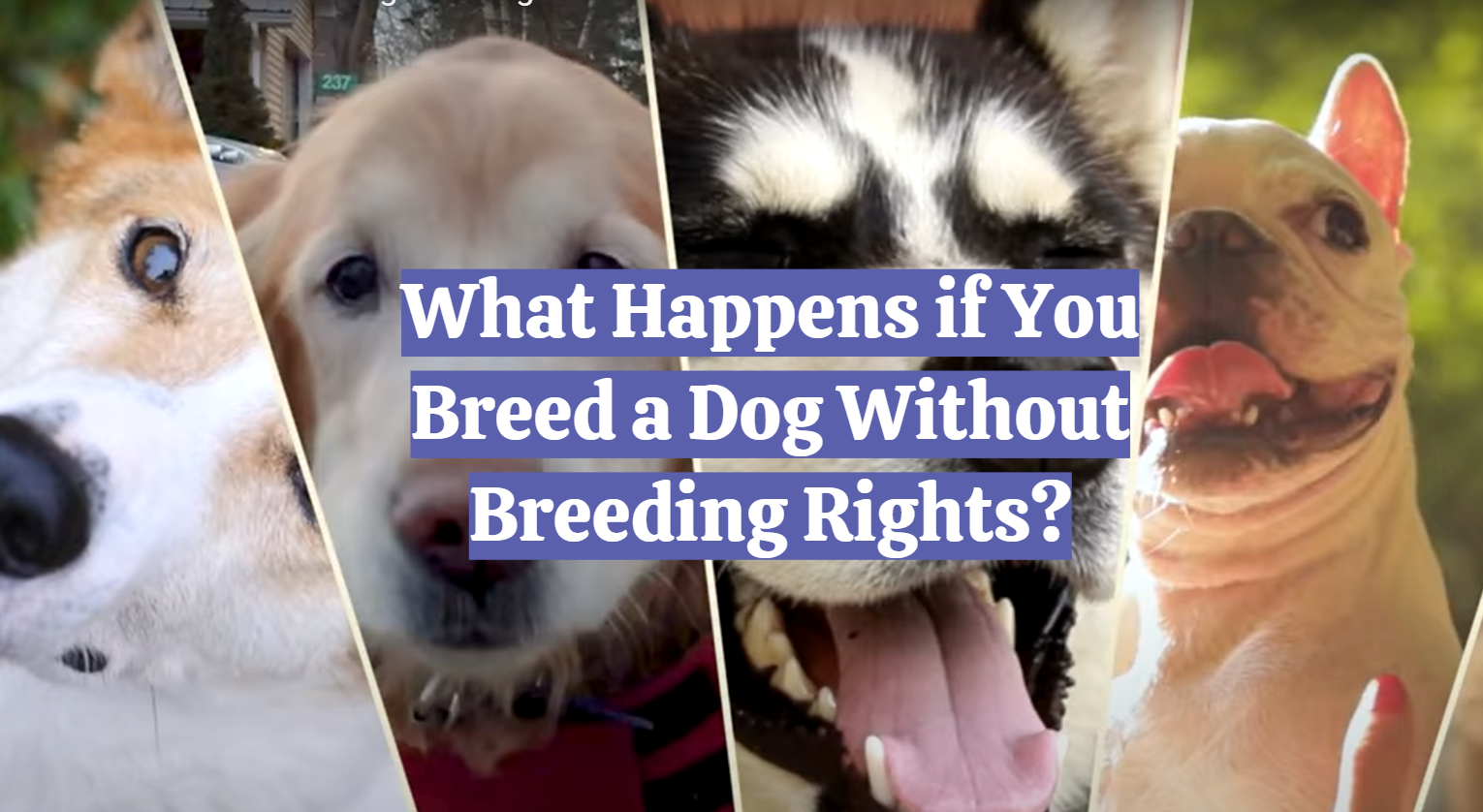




As an advocate of responsible breeding practices, I have deep concerns about indiscriminate dog breeding without adhering to ethical standards. While an accidental litter may seem harmless on the surface, it has significant consequences perpetuating larger systemic issues around irresponsible backyard breeding operations, overpopulation, and animal welfare. Rather than reacting hastily without proper forethought, we must reflect deeply on how personal decisions scale exponentially in the interconnected world we share with voiceless beings relying on human guardianship. I believe compassionate education and open dialogue, not condemnation, pave the path forward.
I adopted my beloved Labrador Retriever from a shelter after she was rescued from a cruel puppy mill situation. Seeing such innocent animals suffering from health and behavioral issues resulting from profit-driven mass breeding haunts me. However, I have also witnessed dedicated small hobby breeders working tirelessly to preserve beloved rare breeds humanely. This dichotomy prompted me to research breeding regulations and ethics further rather than make assumptions. I realized much ambiguity exists involving nuance and context. But we must find common ground balancing preservation with responsibility or else powerless beings pay the ultimate price. It behooves us all to shift mindsets from ownership to guardianship nurturing lives dependent on our protection.
As a former veterinary technician volunteering with rescue organizations, I wrestle with complex feelings about animal breeding ethics complexities. Throughout my career assisting vets routinely tackling preventable hereditary conditions resulting from industrial breeding operations maximizing profits over welfare, I witnessed tremendous innocent suffering perpetuated by public demand lacking deeper reflection on the sentient lives hostage to our collective cultural values. However, I also counseled clients grieving loss of treasured purebred pets fearing beloved rare breeds might fade into extinction without thoughtful population management. This societal tension between preserving lineage diversity ethically while combating commodification of living beings with inadequate protections remains frustratingly unresolved. But through open-minded compassionate dialogue we inch collectively closer toward sustainable solutions balancing science and soul one conversation at a time.
As a pet owner, I understand the desire to want to bring more animals into the world when you have such a wonderful companion. However, any breeding carries ethical responsibilities in order to ensure the welfare of the animals involved. There are many pets already in need of homes, so adding more lives to the world affects the broader system. I would encourage focusing that caretaking energy on giving homes to animals already here who need them.
I adopted my own lovely mix-breed dog from a shelter after she was rescued from questionable origins. Seeing pets end up in bad situations from uncontrolled breeding broke my heart. We must be stewards for voiceless beings. Though education and dialogue, not condemnation, we can find ways to preserve beloved breeds ethically while combating larger systemic issues in the pet industry. There are always alternatives to breeding without permissions.
As someone involved in animal rescue efforts, I have seen both ends of the spectrum, from pets serving profitable breeding operations to those trying to carefully maintain lineage for rare breeds they love. But ambiguity exists involving much nuance and context. As citizens, we must find common ground balancing preservation with wider responsibility for lives dependent on our guardianship. I believe open and thoughtful discussion can lead us collectively to sustainable solutions over time.
Breeding a dog without proper breeding rights can lead to various complications, both for the breeder and the dogs involved. Personally, I made the mistake of attempting to breed my dog without obtaining the necessary rights. Not only did I face legal consequences, but the lack of breeding rights also meant that I couldn’t ensure the health and genetic background of the puppies. This absence of proper documentation and oversight can result in irresponsible breeding practices, contributing to the proliferation of genetic disorders and undesirable traits. Additionally, without breeding rights, potential buyers may be hesitant to trust the legitimacy of the breeding process, impacting the chances of finding loving homes for the puppies.
Based on my personal experience, attempting to breed a dog without proper rights also opened the door to ethical concerns. Without adherence to breeding standards and regulations, the welfare of the animals can be compromised. I found myself dealing with unexpected health issues in the puppies, leading to increased veterinary expenses and emotional distress. Breeding without rights undermines responsible breeding practices, as it lacks the necessary checks and balances to ensure the well-being of the dogs involved. It’s not just a legal matter but a moral responsibility to prioritize the health and happiness of the animals.
In my attempt to breed a dog without the appropriate rights, I encountered difficulties in finding reputable veterinary support. Responsible breeders often work closely with veterinarians to ensure the health of the breeding pair and the resulting puppies. However, lacking breeding rights limited my access to certain services, hindering my ability to provide the necessary care. This experience highlighted the importance of adhering to regulations not only for legal reasons but also for the well-rounded support and guidance that responsible breeders receive from the veterinary community.
Breeding a dog without proper rights can lead to unintended consequences, as witnessed in my personal situation. The lack of oversight meant that I couldn’t guarantee the quality of the breeding pair, resulting in unpredictable outcomes. Some of the puppies exhibited behavioral issues and inherited health problems, which not only impacted their quality of life but also put an emotional strain on me as a breeder. This experience emphasized the significance of breeding rights in ensuring responsible practices that prioritize the health, temperament, and overall quality of the dogs.
From my personal perspective, attempting to breed a dog without the appropriate rights created a challenging environment for finding suitable homes for the puppies. Prospective buyers were understandably cautious, given the lack of proper documentation and oversight. This skepticism made the rehoming process more complicated and prolonged, affecting the overall well-being of the puppies. Breeding without rights not only jeopardizes the health and genetic integrity of the dogs but also undermines the trust of potential adopters, making it harder to establish positive relationships and secure loving homes for the animals.
Reflecting on my experience, breeding a dog without the necessary rights also led to difficulties in building a reputable breeding business. Responsible breeders adhere to ethical standards, ensuring the best interests of the dogs involved. Without proper rights, it becomes challenging to establish credibility within the breeding community and among potential buyers. This lack of recognition hinders the growth and success of a breeding venture, emphasizing the importance of obtaining and respecting breeding rights to foster a positive reputation in the industry.
In my journey of breeding a dog without proper rights, I faced unexpected financial burdens. Responsible breeders invest in the health, well-being, and proper documentation of their breeding pairs, which contributes to the overall cost of breeding. Without the legitimacy that comes with breeding rights, potential buyers were hesitant to pay the expected value for the puppies. This financial setback not only affected my breeding aspirations but also underscored the economic implications of bypassing the necessary legal and ethical channels when entering the breeding world.
Breeding a dog without the appropriate rights can also strain relationships within the breeding community. Responsible breeders value collaboration, mentorship, and adherence to common standards. In my case, lacking breeding rights meant exclusion from supportive networks, making it challenging to learn from experienced breeders and access valuable resources. This isolation not only hindered my growth as a breeder but also highlighted the significance of being recognized within the breeding community for shared knowledge and best practices.
One aspect I hadn’t considered when breeding without rights was the impact on the breed itself. Responsible breeders work towards maintaining breed standards, improving genetic diversity, and contributing positively to the overall health of the breed. Without breeding rights, I unintentionally became a part of a process that could compromise the long-term viability and health of the breed. This realization emphasized the broader implications of breeding without proper authorization, extending beyond personal consequences to impact the breed’s well-being.